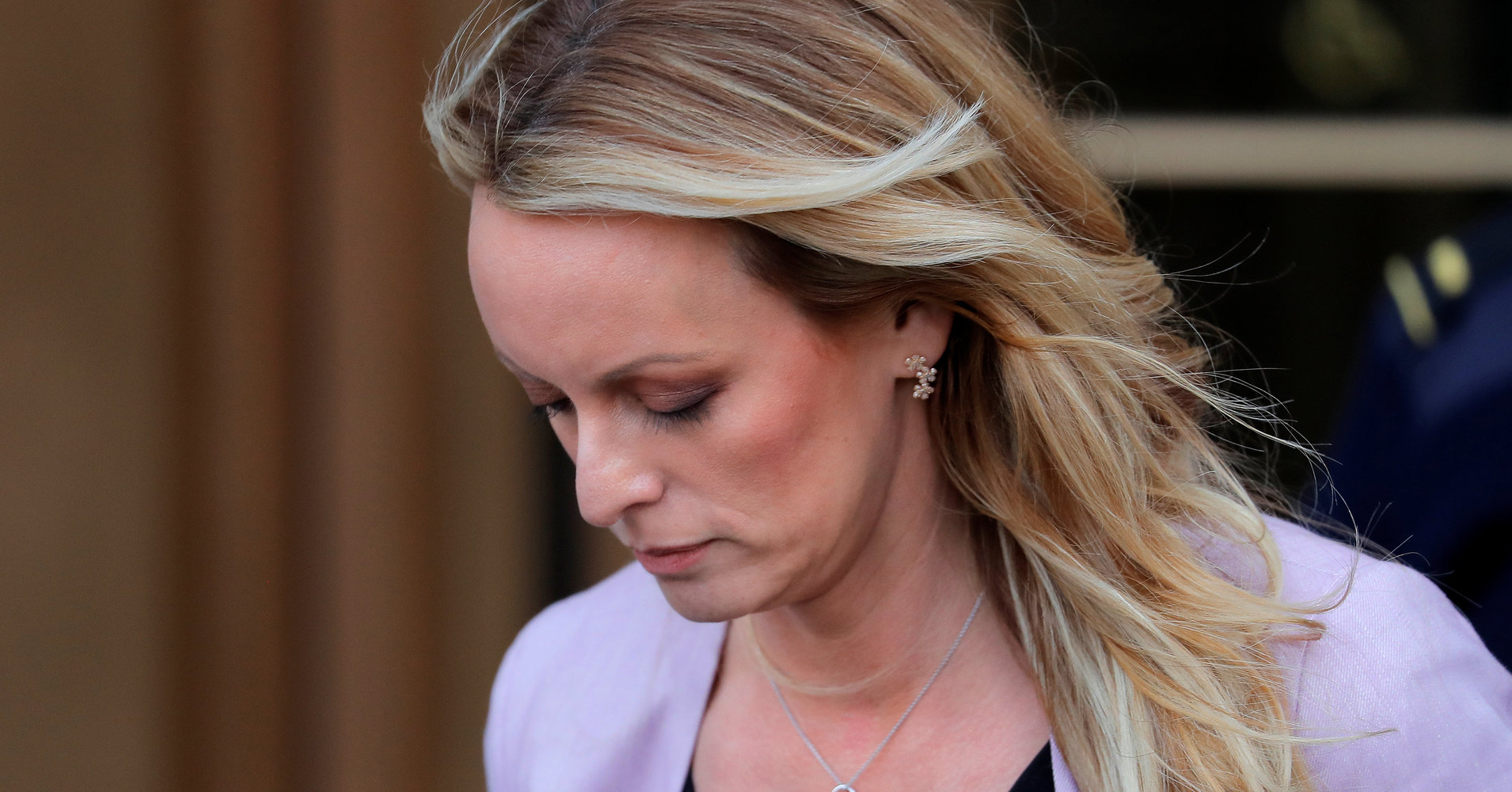[ad_1]

Columbus police officers on Thursday morning arrested Stormy Daniels ― the stripper and porn actress who says she had an affair with President Donald Trump in 2006 and was paid hundreds of thousands of dollars to keep quiet about it ― for violating an obscure Ohio law that bans dancers from being touched by club patrons.
Daniels, aka Stephanie Clifford, was arrested after engaging in sexual contact with undercover police officers. And while that interaction opened her up to prosecution, for the officers, it was totally legal.
The police report detailed how the arrest happened. Four officers attended Daniels’ performance at the Sirens nightclub in Columbus as part of what they claim was a human trafficking operation. They witnessed Daniels “grope” other patrons’ breasts, as well as force two of the undercover police officers to bury their faces in her bare breasts. According to Daniels’ lawyer, Michael Avenatti, the two undercover officers asked if they could touch her. Daniels was arrested shortly after.
In all 50 U.S. states, it’s legal for law enforcement officers to make sexual contact ― but not have full penetrative sex ― with prostitution suspects or suspected human traffickers as part of an investigation. In fact, it’s common practice for police officers to obtain sexual favors or make sexual contact with sex workers as part of an investigation, then use that sexual contact as proof of prostitution and arrest the sex worker on the spot.
The strategy is similar to how vice officers go undercover and purchase drugs from dealers to prove their cause for arrest. But in the case of prostitution investigations, sex workers have described how the tactic can feel akin to rape and sexual assault.
“I felt like I was raped … I feel like he used his badge as a way to have sex with me,” one former escort, who goes by Rachel, told HuffPost last year after being targeted in a prostitution sting in Alaska.
Rachel is one of many current and former sex workers in the state who have had sexual contact ― or full-blown sex ― with men only to discover that they had just performed sexual services for a cop on the job. She avoided arrest by not touching the cash that the officer had set down before having sex with her, and bolting out of the hotel room before she could be questioned further.
Alaska is the only state where legislators have attempted to amend the loophole that allows law enforcement to engage in sexual activity with suspects, but since its introduction, the bill hasn’t moved forward. Legislators have simply shown little interest in pushing for the measure, state Rep. Matt Claman (D), who introduced the bill, told HuffPost last year.
While there is no national data on how voters feel about this, citizens in Claman’s state largely disapprove of the practice. In 2016, CUSP, a sex worker advocacy group based in Alaska, conducted a statewide poll that showed 92 percent of registered voters had no idea that police could have sexual contact with sex workers when investigating them, and 90 percent believed the practice should be illegal.
The issue is particularly troubling considering the long, documented legacy of abuse of sex workers by law enforcement officers.
There is also no national data on how many police officers have abused sex workers, or suspected sex workers. But anecdotal evidence points at a persistent problem. The case of Celest Guap, a sex worker routinely sexually exploited by dozens of Bay Area law enforcement members in 2015 when she was still underage, has haunted the sex worker community. Daniel Holtzclaw, a former Oklahoma City cop, was convicted in 2015 of abusing his power as a cop to sexually assault eight black women, some of whom were sex workers. And sex workers in Rhode Island reported that law enforcement members had robbed, raped or assaulted them, according to a recent confidential survey conducted by sex worker rights group Call Off Your Old Tired Ethics, or COYOTE. Consequently, a 2011 law journal study showed that many sex workers express fear of going to law enforcement when they’ve been victims of a violent crime because they don’t trust officers to not harm them as well.
In Daniels’ case, Columbus Police Chief Kim Jacobs announced on Friday that the arrest was “an error” and that Daniels had not broken the law under which she was arrested. Jacobs also said that the officers who arrested Daniels would be reviewed internally for their motivations behind the arrest. However she maintained that the officers were “well within their area of responsibility when taking enforcement action.”
Columbus Police Department did not return HuffPost’s comment requests at the time of publication.
[ad_2]
Source link

